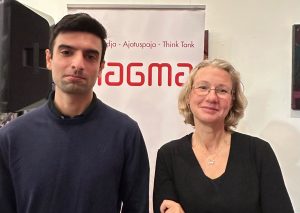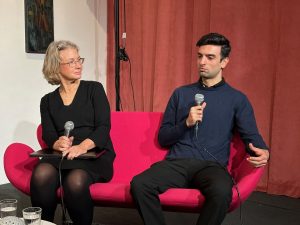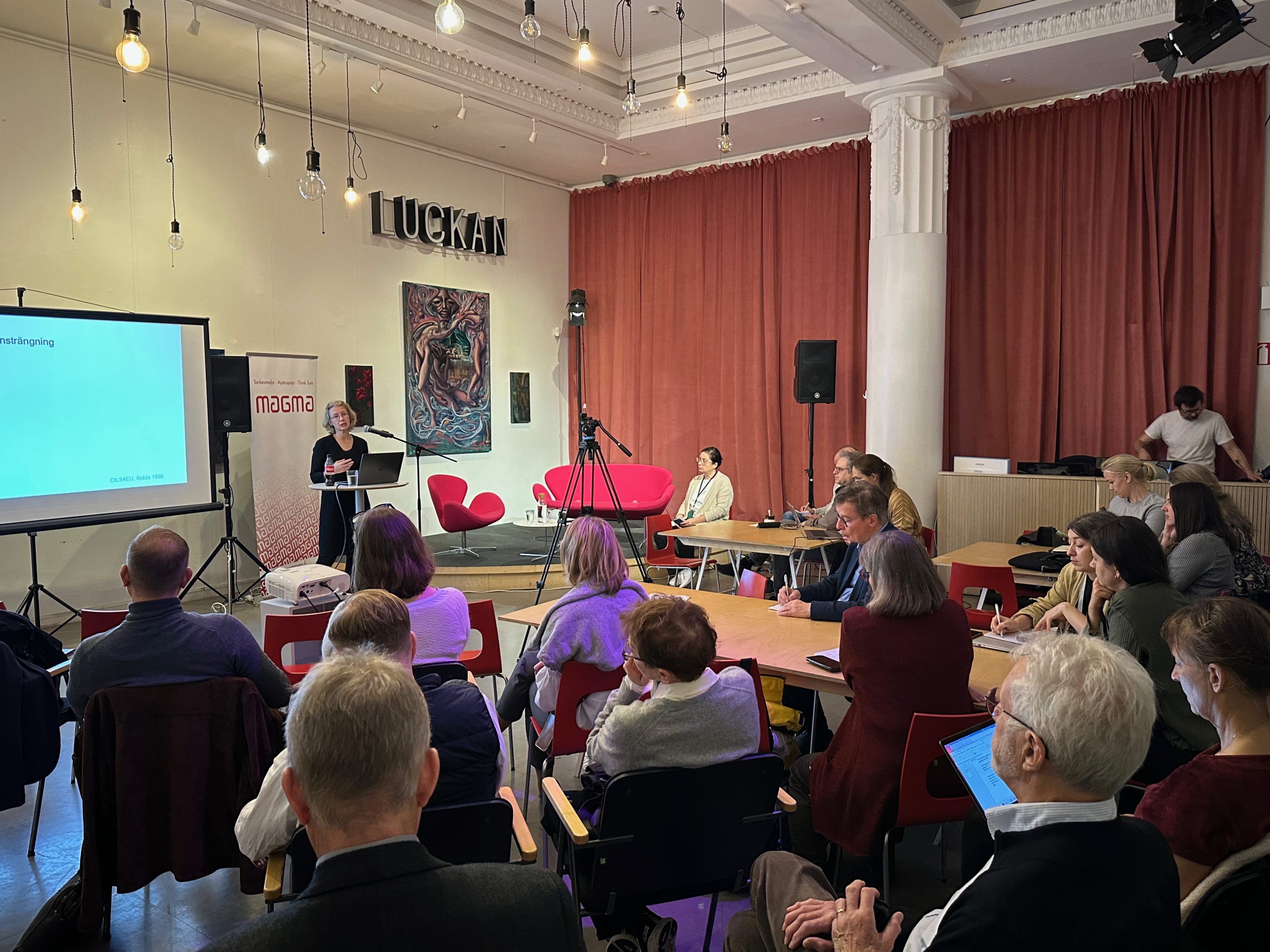How is the sense of belonging shaped among young people with immigrant backgrounds in today’s multicultural societies?
Magma organized a seminar on values of foreign-born individuals on Tuesday, October 7, at Luckan, Yrjönkatu 27, Helsinki.
The seminar featured two researchers who, in different ways, have explored how people with immigrant backgrounds experience integration, cultural identity, and the future in Finland and Sweden: Muhammad Tayyab and Carina Mood.

Carina Mood, Professor of Sociology at Stockholm University and the Institute for Futures Studies, presented findings from her book Integration among Young People – A Multicultural Generation Grows Up. She discussed cultural integration in relation to optimism about the future, social integration, aspirations, and education. 📖 Read the book here (in Swedish)
Mood’s study showed that young people with foreign backgrounds often are optimistic about the future and have high ambitions regarding education and career. Integration into higher education is progressing rapidly, but young people with foreign backgrounds are also at greater risk of ending up with very low educational attainment.
The study also revealed that cultural and social integration proceed more slowly. Values related to family, gender equality, and sexuality are gradually converging toward Swedish norms, but significant differences remain—particularly between the first generation and those with entirely Swedish backgrounds. A dual identity becomes more common in the second generation: many young people feel both Swedish and as a part of another ethnic group.
Muhammad Tayyab, Doctoral Researcher in Social Psychology at the University of Helsinki, presented his study on how first-generation Muslim immigrants relate to Finnish society, focusing on identity, faith, and belonging.
His research shows that the link between Muslim identity and a sense of belonging in Finnish society depends on the role of faith in the individual’s life. Among literal interpreters of Islam, a strong Muslim identity tends to reduce the sense of belonging, while among symbolic interpreters, a strong identity does not weaken belonging.
This suggests that a literal reading of religion may create tension with Finland’s secular norms, whereas a symbolic interpretation allows for adaptability and integration. A religious identity without genuine conviction is described as fragile and hollow, often rooted in ethnicity or family tradition rather than personal belief. Conviction, on the other hand, provides stability and grounding.


